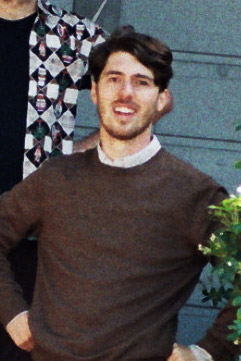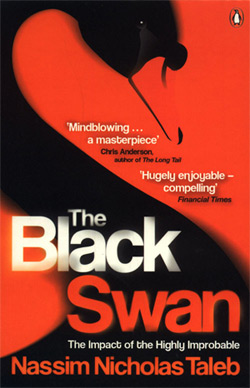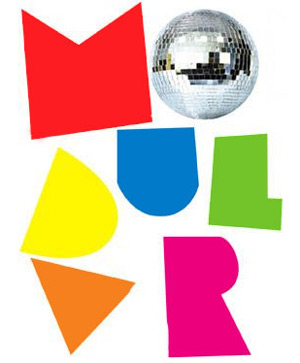 Tait Ischia is the co-founder of an excellent resource for young creatives named Junior, a freelance writer, and a RMIT Creative Advertising graduate. The degree is listed last for a reason, as Tait believes in getting shit done, instead of basking in his own glory.
Tait Ischia is the co-founder of an excellent resource for young creatives named Junior, a freelance writer, and a RMIT Creative Advertising graduate. The degree is listed last for a reason, as Tait believes in getting shit done, instead of basking in his own glory.
It’s no secret that Tait’s Junior – founded alongside RMIT fellow Ed Howley – regularly kicks my inspiration’s ass. They rope interesting, real-life creatives into entertaining conversations; unsurprisingly, their no-bullshit style is a big influence on my interviews. In tribute, this piece will adopt Junior’s bright-highlight style to draw your eye to choice advice that’ll flow from Tait’s brain to yours. Eww.
I sent Tait the link to my Tim Kentley interview, which referenced his initial piece for Junior. Since he’s such a fucking nice guy, he agreed to answer my questions that’d lingered since reading The Enthusiast‘s January 2009 interview.
Tait, I loved your statement in The Enthusiast’s interview: “really, the economy being in the dumps doesn’t mean anything [for junior creatives]“. Marketing budgets might have contracted of late, but businesses still need agencies to develop engaging ideas to raise awareness of their products or services. Hell, you could probably argue that right now is the best time for dedicated creatives to work their arse off and make a name for themselves; on the economic ground floor, so to speak. What do you think?
You’re really asking two questions here. One about the economy and one about juniors. It’s a fucking elephant’s cock of a question, so bear with me.
It’s a tough time for anybody in business, and creative businesses aren’t immune. I’ve heard a bunch of stories where agencies have had budgets cut in half, projects fall over just when they’re ready to shoot, and clients taking away their business entirely. It sucks big time.
Having said that, the creative industries aren’t a giant immovable object. Unlike businesses run by boring dudes in suits, creative businesses are run by people who can change and adapt pretty easily.
So although it’s a tough time for everyone, this is a pretty good industry to be in at a time like this.
The other part to that is everybody in the world right now is re-thinking what the hell they spend their money on. All of a sudden throwing money around on bitches and fine cheeses isn’t seen as a very good idea anymore.
So as far as creative industries are concerned, especially advertising agencies, there’s a whole lot of people reading newspapers and watching TV wondering what the hell to spend their money better on. In other words, a captive audience. Which means it’s the perfect time for clients to advertise. And the word on the street is those clients that do will come out of this faster and bigger than those that don’t.
As far as juniors are concerned, “really, the economy being in the dumps doesn’t mean anything“. I’m glad I said that. I can’t put it any better than what Clemenger BBDO‘s Emma Hill told us in her interview, “It’s the toughest that it’s ever been for juniors. That being said, their advantage is they don’t cost much. So you can look at it as glass half empty or full.”
Many big agencies have put on hiring freezes and a huge amount of poor people are losing their jobs. BUT! And this is a huge but. Good people will always get work. If you’re awesome then businesses will go out of their way to get you in. You will make them money. It’s as simple as that.
All you have to do is prove to them that you are awesome. How you choose to do that is your choice. Here’s a good tip though, again from Emma Hill, “If your idea is a bit gimmicky, you come across as a gimmicky creative. Rather than a genuine, intelligent one.”
Show them you’re intelligent and that your work is great – do that and you’ll be fine.
You rose from a ‘zero’ advertising undergraduate to junior ‘hero’ over the last two years, and it’s all documented online. I’m a couple years younger than you, but this is essentially the ethos of our generation: everything we’ve ever done online will be visible to everyone, forever. Gary Vaynerchuk discusses this legacy regularly; what are your thoughts?
That is by far one of the funniest and scariest vlogs I’ve seen in a while. Whatever that guy says should be taken with a grain of salt, then possibly spread on something to make it delicious. Unless you want to be a greasy entrepreneur and have a lot of people hate your guts, don’t talk about your ‘personal brand’ too much.
I think smart people will be careful what they put their real name to. But I don’t think anyone should worry too much about what they put online, especially in this business. The internet is here to stay, so rather than get scared by what people ‘might’ find, embrace it. Put out a lot of stuff you want people to see, and put your name all over it.
I’d rather there be pages and pages of things I’ve made and be proud of on Google than a clean page with nothing on it.
Vaynerchuk reckons that legacy is always greater than currency. The latter is frequently cause for concern among my creative friends – “how do I get paid to do what I love?” Conventional wisdom suggests that the creative industries are tough to break into, in that it might take months or years to work on your passion full-time. What was your experience scraping coin together as an undergraduate – and later, junior at The Surgery – and would you advise that others follow your path?
I’ve had a lot of fun scraping money together over the years. I moved out of home while at uni and started a profitable friendship with Centrelink [note: Australia’s welfare/youth allowance provider].
I moved closer to the city so I could hang-out with my peers and blow my money getting drunk with people like Penny Modra at ThreeThousand. Getting drunk and spending all your savings doing it is a great investment in your career. Like those old douchebags in business school always say, you need to spend money to make money.
If you’re really that passionate about what you’re doing then you will make enough money to survive. If you’re super smart and commercially minded you will make a decent amount of money and possibly own a Mercedes. Best thing to do as a junior is get a full-time job, get paid a salary, stop worrying about money, and focus on doing great work.
“Blogs get jobs“. A mantra you share with the likes of Craig Wilson and Gavin Heaton. My experience is that if you’re prepared to invest your time into an unpaid personal project, a smart employer will recognise that investment and reward you with an offer. It’s really that goddamn simple; why do you think people still have a hard time understanding it?
Because everyone’s so frickin’ lazy. The problem with social media and all the ‘gurus’ it has produced is that everyone’s so caught up being a part of the conversation that they forget to actually do stuff.
I suppose it’s OK if you want to be a planner or an accounts person because those jobs require you talk shit and be good at it. But if you want a job actually doing something, it’s not enough to merely want one. You have to prove to business owners that you are good and that you’ll make them money. And of course the best way to prove it is by doing stuff.
Blogs are the easiest way to do stuff. It’s basically like maintaining a Facebook but isn’t a complete time-wasting exercise in vanity. If all the kids these days spent the same amount of time writing blogs that they did on Facebook, then this industry would be a hell of a lot more competitive.
Woody Allen said, “eighty percent of success is showing up“. If you write in a blog regularly you are already doing better than eighty percent of your rivals. Now all you gotta do is write well, try not to piss anyone off and spread the love. After that, getting a job should become a hell of a lot easier.
Procrastination. How do you deal with the urge to shirk your writing responsibilities when YouTube/Wii/the pub seems more enticing?
I’m still dealing with this one. It’s an ongoing struggle for everyone, but I think I’m finally getting on top of it. I recently found this article on procrastination to be pretty fascinating. I think it’s something we’ve all got to deal with in our own time.
Some people are married to their work, some want to actually have a life, and others sit at their desk staring at a blank screen for hours. I don’t have any other advice than sit down and do some work. I recommend ‘just starting’. That’s always been a good motivator for me.
If you don’t know where to start, just begin anyway, and it will start flowing soon enough.
Really, if it’s that big a problem, the best thing to do is to quit all your jobs and have your livelihood depend on your work. If you know you’re going to get evicted unless you write that article, you’ll be working your ass off.
And if you don’t do it and get evicted you’ll know what it feels like and you’ll never do it again.
You studied creative advertising at RMIT. Was it a kick-ass, practical degree full of industry-applicable knowledge? Would you recommend taking it?
To tell you the truth, I have no idea whether taking that course was better than taking any other university course. It was as awesome as it was shithouse.
I made some incredible friends. One of our lecturers became our weekly Junior whip cracker, Stan Lee. We were exposed to the industry and all the shit it stirs. Sometimes I wish I had gone to Melbourne Uni and done a good old arts degree but even that has its own ups and downs.
I think the best advice is to never let your schooling get in the way of your education. University is just a building. Most of them don’t even have any good resources anyway. If you go to a uni where you can immerse yourself in culture, ideas and people than you’re on the right track.
So as far as that’s concerned I definitely recommend it as a course. Just don’t go there hoping to learn everything there is to know about advertising.
What’s next for Junior?
Good question. We’ve got a few big things on the horizon. Nothing I can divulge on right at the moment because there’s a chance it will all die in the ass. But as soon as its locked in we’ll let you know.
Otherwise I’m meeting with Woody from SneakerFreaker Magazine tomorrow for a beer and a chat and an interview. It’ll be nice to do an interview that isn’t advertising focussed. I haven’t done one of those in a while.
What’s next for you?
I’m headed to New York City in June. I’m done with Melbourne and this wasteland called Australia. I’m ready to be a very small fish in a very big pond and put myself to the test, Big Apple-style. I’ve got a handful of contacts, a neat little folio of work and this thing called Junior that I’ll be taking over with me. I’m staying for nine weeks but if all goes to plan I’ll be staying a little longer.
Right now though, I’m taking some time off to read books, go to the cinema, pick chestnuts and freelance.
Why freelance? What attracted you?
Not having to be at work at 9am every morning and 8.30am on Mondays. I can also focus on my work much easier without an office buzzing around me. It’s a temporary thing for me before I go to NYC, but I can see why some people can’t do it and why others swear by it.
We interviewed Todd Lamb on Junior and he told us this, “I don’t have any advice other than freelancing is 100% gambling. It’s unsteady and with no guarantees. So you better be brave and you better be OK with falling flat on your face. But I recommend everyone try it, it is a different way to live.”
So there you go. It’s helped me work better and more efficiently in the two months I’ve been doing it and I’ve made enough to pay the bills so I’m doing OK.
Finally; why did you stop blogging? I figured that freelancing would mean that you could better spread your time between client, publication and personal writing, as well as Junior and name-yer-social-network-flavour-of-the-month.
Ah, that old chestnut. I literally blogged for about two weeks. That blog got me in with the lovely people at Right Angle Publishing – as discussed in my interview with The Enthusiast – which was why I started it in the first place. So after I achieved my goal I just stopped. I was a student when I started it and I don’t really think the same as I did then either.
I’m not a huge fan of ‘marketing comment’. I think there’s a place for it but I don’t want to be a strategy planner or a social-media guru. I want to be a creative. And a creative doesn’t comment on what other people do, they go out and do stuff themselves for other people to comment on.
So yes I sorta do plan on blogging again, but only when I can use it to show the world my creativity and not just to add to the already saturated pool of marketing comment.
If you’ve read this far and you haven’t yet subscribed to Junior, it’s best you click here and follow-through. Don’t be scared; it’s likely that Tait Ischia’s writing will regularly kick your inspiration’s ass, if the above interview hasn’t already. Contact Tait via email or Twitter.
 For the last couple months, I’ve been reading a book by Nassim Nicholas Taleb called The Black Swan. I’m not going to feign complete comprehension, as frankly, it’s the most challenging thing I’ve read since Robert Greene‘s 48 Laws Of Power, which took me over a year to absorb.
For the last couple months, I’ve been reading a book by Nassim Nicholas Taleb called The Black Swan. I’m not going to feign complete comprehension, as frankly, it’s the most challenging thing I’ve read since Robert Greene‘s 48 Laws Of Power, which took me over a year to absorb. I’ve been online for like 10 years, and I’m only just beginning to consciously pay attention to this stuff. Cumulative advantage dictates that the more time you spend online building meaningful relationships and contributing to the internet, the easier it’ll be to get what you want.
I’ve been online for like 10 years, and I’m only just beginning to consciously pay attention to this stuff. Cumulative advantage dictates that the more time you spend online building meaningful relationships and contributing to the internet, the easier it’ll be to get what you want. Tait Ischia
Tait Ischia